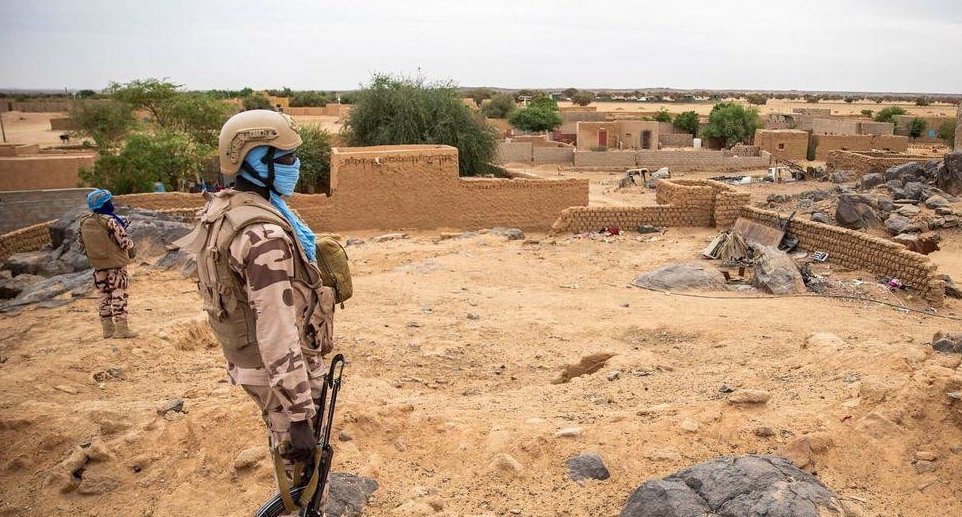
Mali, one of the poorest countries in the world and one whose refugees seek asylum in Europe, is facing increased jihadist violence. Amid the turmoil, the European Union also confirmed that Russian mercenaries are on the ground in the country, presumably to help fight off the jihadists.
“The presence of mercenaries from the Wagner Group is now confirmed by several sources. We understand that, so far, several hundreds of mercenaries are deployed in Bamako and in the centre of the country,” the EUObserver reported on January 17th.
The Wagner Group is a Russian private military company. Moscow has denied links to the Wagner Group, but many experts believe it often deploys at the behest of the Russian government. Since 2014, it has been involved in conflicts in the Ukraine, Syria, and other parts of Africa and has been accused of committing war crimes. The European Union imposed sanctions on the company in December 2021.
The Malian government has brought in the Russian mercenaries to help fight the ongoing incursion of jihadist insurgents that started almost ten years ago. The Russians moved in just as many of the French troops leading an eight-year European special forces mission pulled out. Besides the mercenaries’ potential to increase the violence, European countries and other experts fear that Russian support of Mali is another sign that Russian President Vladimir Putin wants to recreate for Russia the former Soviet Union’s sphere of influence. This is not the first time that Russia has had a hand in Malian affairs.
After France’s withdrawal in 1961, the first Malian president, Modibo Keita, turned to the former Soviet Union and other nations to train and equip the Malian army. The military cooperation continued until the early 1990s. Mali is currently ruled by a military junta that first took power in a coup in 2020.
“Most of the military in power in Mali were trained in Russia and are close to the Kremlin,” Malian analyst Mahamadou Konaté told the German news site DW.
“We should be careful not to send these mercenaries into action, also because of the risk that they could commit massive human rights violations,” he also warned.
Russian paramilitary presence was first suspected late last year, but today media outlets are reporting that the Malian government has acknowledged that Russian military “trainers” have been deployed to a base in historic Timbuktu, where French troops had been providing security until mid-December. When European governments first feared that Mali was bringing in Russian mercenaries, Russian Foreign Minister Sergey Lavrov defended Mali’s right to contract private-sector paramilitary.
Large swaths of Mali have been submerged in violence since jihadist insurgents overran some regions of the former French colony in 2012. French troops started countering the insurgents in 2013 and secured the three main cities in northern Mali, but Islamist militant groups still control rural areas of the regions they have breached. In July 2021, French President Emmanuel Macron announced a drawdown of the 5,000 troops then in Mali. As of mid-December, the French have left three fortresses in the north, including historic Timbuktu. The remaining French troops are now concentrated further east in Gao, to provide air support and training to Mali’s military.
Amid this changing of the guard, the violence is getting worse, according to humanitarian workers on the ground.
Aid to the Church in Need, an NGO that provides humanitarian relief in central Mali, reported in December that attacks on civilians by Islamic militants have increased, particularly targeting Christians and others who oppose them. In the central Ségou region, fierce fighting has broken out with local community militia and Donso hunters trying to repel the Katiba Macina, an Al Qaeda–linked insurgent group.
A source told the NGO: “The desire to impose Islamic Shari‘a law is proof that the jihadists, especially those of the Katiba Macina, are working for the expansion of a radical Islam of a kind that many other Muslims do not share.”
“The jihadists are acting in the name of religion. Everything that does not conform to their own ideology suffers as a result. That is why there are so many refugees,” the source added, who has chosen to remain anonymous for security reasons.
Now Russian mercenaries have been thrown into the mix.
At the end of 2021, the European leaders came out strongly against any collaboration between Mali and Russian mercenaries. The EU is also considering sanctions.
Mali is also facing sanctions by other African countries.
The military junta currently leading the country, which first took power in a coup in August 2020, had agreed to hold elections in February 2022. Perhaps emboldened by the French withdrawal and Russian support, it has gone back on that agreement, proposing to postpone elections until 2025. In reaction, the Economic Community of West African States imposed sanctions on Mali earlier in January. The EU is also considering sanctions.
On January 14th, the junta organised a protest of the sanctions, and plans to fight their legal legitimacy in international court.
Over 400,000 people in the country of 19 million have already been displaced, according to the UN. In addition to conflict, increasingly hot temperatures and water scarcity in the region are also forcing people to leave their homes. Some areas that were fertile agricultural lands a generation ago are now deserts. Since 2013, jihadist violence has spread to the entire western Sahel, the region that stretches along the southern edge of the Sahara Desert and includes parts of Mauritania, Burkina Faso, Mali, and Nigeria. The UN estimates that 2.7 million people have been displaced across the region. They have been granted refugee status by the UN, and though many have resettled within Africa, others attempt to seek asylum in Europe.
